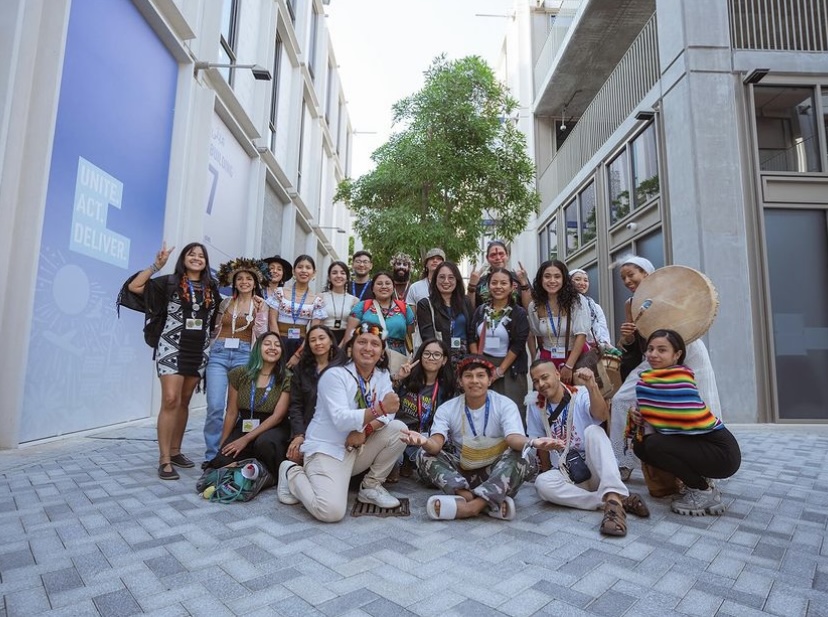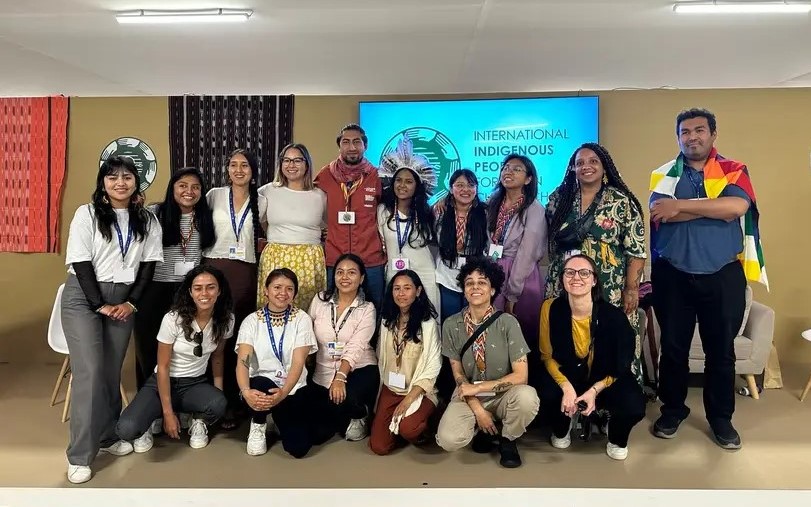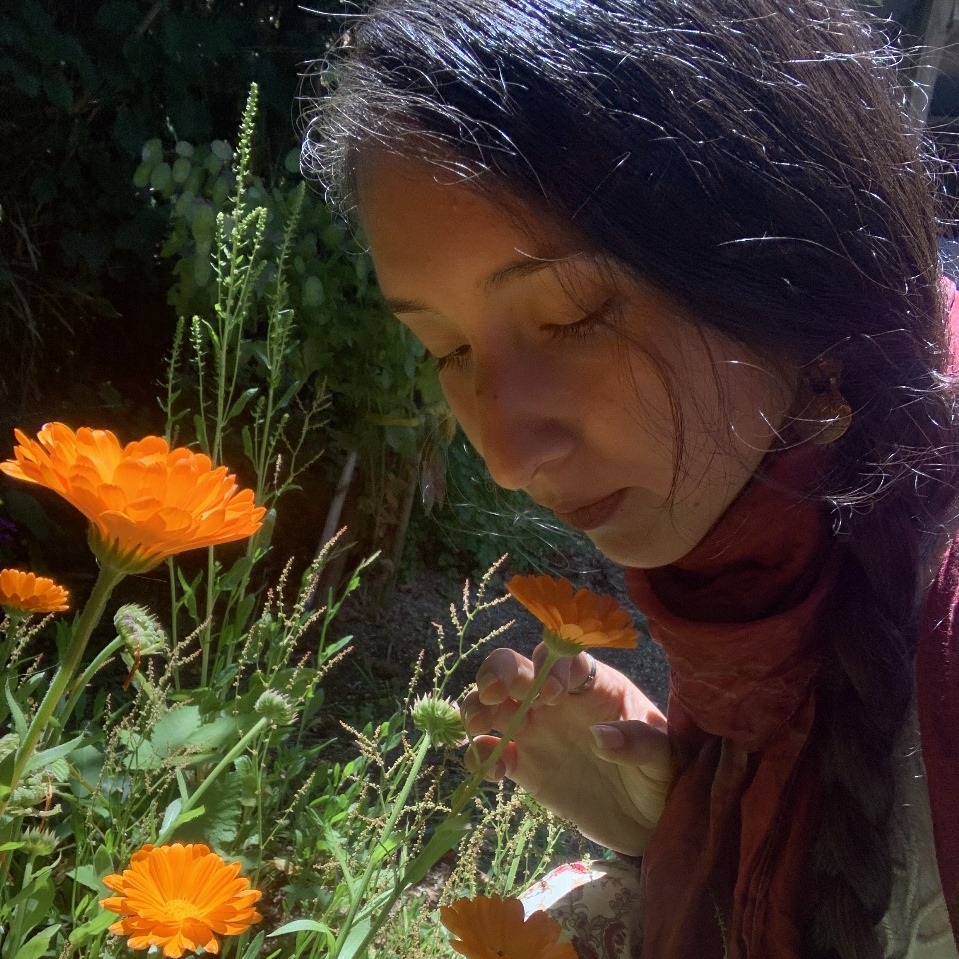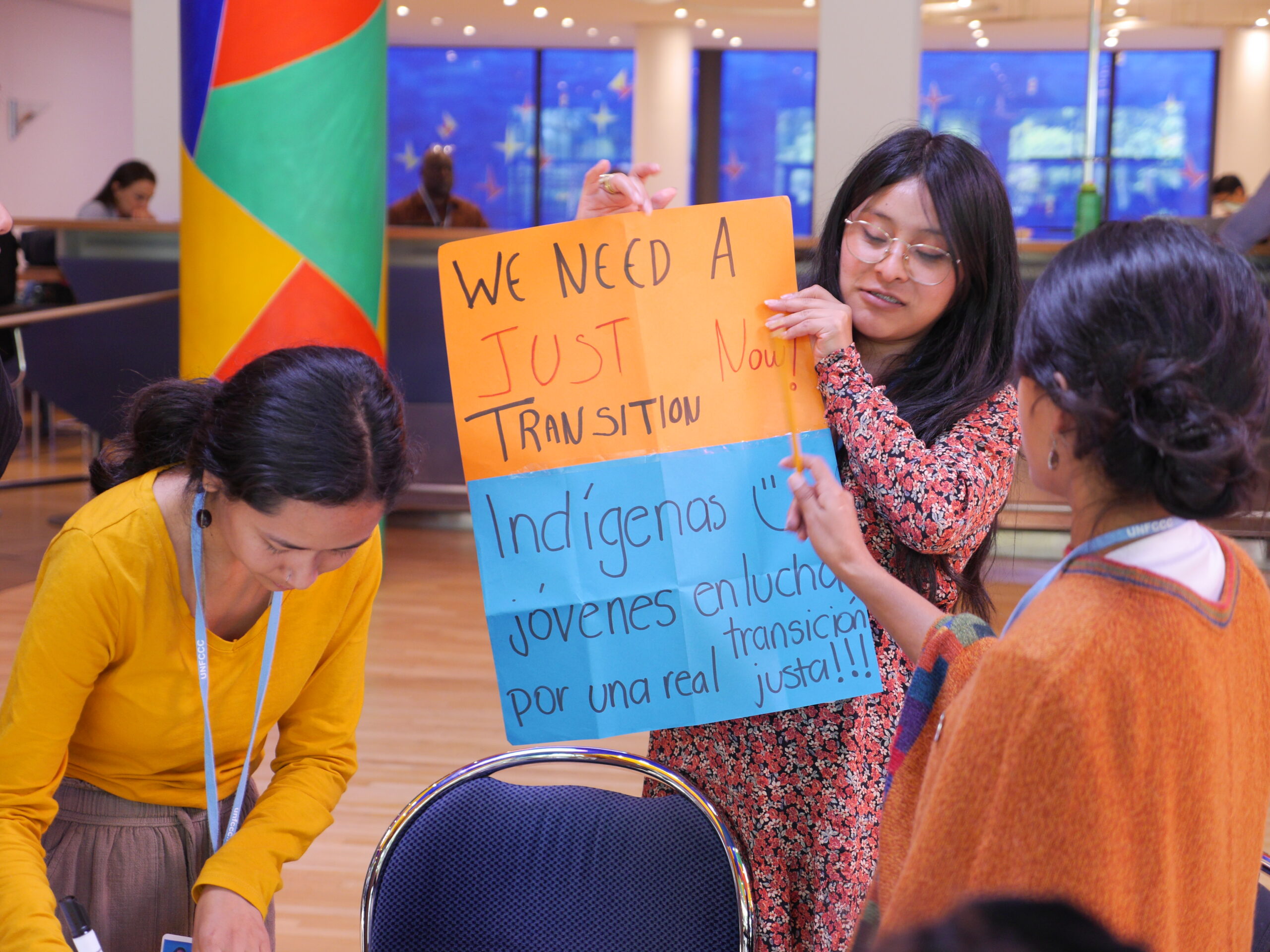Every year, Indigenous youth’s participation in the United Nations Framework Convention on Climate Change (UNFCCC) is becoming ever more visible. And yet, although the international community recognizes their voices and the key role they are playing in defending their rights, young people continue to face multiple barriers to their full and effective participation. Such barriers are pushing new generations to pioneer collective proposals that seek to remind the world of the urgency of regenerating the fabric in climate action and of the importance of adopting a comprehensive rights-based approach.
“Indigenous youth, both women and men, are leading the global movement for climate action,” said United Nations Secretary-General Antonio Guterres at the commemoration of the International Day of the World’s Indigenous Peoples in 2023. This statement marked a milestone in highlighting the leadership that young people exercise when defending their rights, despite the multiple problems they face on a day-to-day basis in their communities. Pondering the strength of these young people in organizational processes and multilateral bodies, the Special Rapporteur on the Rights of Indigenous Peoples, Francisco Cali Tzay, urged States to take measures to guarantee their participation in decision-making and to take account of the problems affecting them.
This recognition is the result of the struggles and efforts of young people who, from the countryside, the city, the forest and the mountains, have transcended their borders and their daily constraints to raise their voices against injustice. Their deteriorating livelihoods, the threats posed by extractive projects and the impacts of climate change on their territories are just some of the many reasons that are pushing a new generation of Indigenous individuals to take a stand and emerge from their communities. Many of them are thus arriving at negotiating spaces in which issues fundamental to the future of life and humanity are being decided, and they are reminding the world of the urgency of much needed change.

Heirs to a major historical struggle
As the bearers of their ancestors’ legacy, increasing numbers of Indigenous youth are arriving at the UNFCCC Conferences of the Parties (COP), overcoming many difficulties along the way. The structural deficiencies they experience in their relations with States are reproduced in these multilateral negotiations and their full and effective participation is hindered by their observer status in the process. It is therefore urgent that States reverse the unequal conditions to which they have relegated Indigenous Peoples, despite being rights holders, and that they recognize their agency as political actors.
In this context, Indigenous youth are reclaiming the legacy of their elders’ leaders to get their rights respected, both in their own countries and in the United Nations and, specifically, the United Nations Framework Convention on Climate Change. In this space, young people find an opportunity to meet with leaders from around the world, joining in current processes that will define the struggles of the future. A future in which the leadership of the new generations is already critical.
The voice of youth is a call to humanity to recover an integral and transgenerational vision of life focused on the regeneration of society and its links with nature, one that envisages a future life on earth.
The voice of youth is a call to humanity to recover an integral and transgenerational vision of life focused on the regeneration of society.
At its 23rd session, the United Nations Permanent Forum on Indigenous Issues emphasized the barriers they face: “Indigenous youth face significant barriers, including discrimination and marginalization, which severely undermine their ability to practise and maintain their culture, traditions, language and identity.” The body recommended that Member States and the United Nations system develop educational and leadership programmes tailored to the needs of Indigenous Peoples. The Forum believes it is essential that young Indigenous women are enabled to realize their potential as leaders and guardians of their culture and territory.
In a scenario rife with colonial overtones, the voices of youth should not go unheard. Their message is a call to humanity to recover an integral and transgenerational vision of life: one focused on the regeneration of society, its human and natural bonds, one that envisages a future life on earth and the right of the next generations to exist. Regeneration for action, in the context of the climate crisis, is the example set by Indigenous youth in demanding to be heard and included in decision-making. This is also an opportunity to rebuild a damaged fabric in need of repair, and in which the values and wisdom of our ancestors are necessary now more than ever.

A future for Indigenous youth
One year on from the founding of the International Indigenous Youth Forum on Climate Change (IIYFCC), formally recognized under the International Indigenous Peoples’ Forum on Climate Change (IIPFCC), Indigenous youth from the seven socio-cultural regions are now putting forward their proposals to move from symbolic to substantive recognition of their rights and agency. They are calling for the inclusion of a trans- and intergenerational perspective in the search for solutions, allowing for regeneration of the fabric. They are also calling for a transformation of the colonial logic of the current development model, thus ensuring that age-old wisdom of incalculable value to climate action is passed down.
With their proposals, Indigenous youth are seeking to remove the barriers to participation in climate negotiations and thus ensure a future in which their realities are present and their voices represented in both formal and informal negotiating spaces. In the last consultation with the Youth Champion for COP 29, Leyla Hasanova, representatives of the International Indigenous Youth Forum on Climate Change expressed their concern at the colonial logic being perpetuated in the UNFCCC, including a lack of recognition of cultural and linguistic diversity, worldviews and spirituality. They requested culturally safe spaces for Indigenous youth who participate in the meetings to perform their ceremonies.
Indigenous youth cannot participate meaningfully if we are fighting for basic human rights, including the right to self-determination and free, prior and informed consent.
Indigenous youth cannot participate meaningfully if we are fighting for basic human rights.
The young people also demanded the provision of effective interpreting as this is a crucial aspect that limits the involvement of Indigenous leaders who do not speak the official UN languages, particularly English. In addition, they requested that Indigenous communities and organizations be provided with direct, simplified and equitable access to climate funds. They thus added their voice to the complaints made by Indigenous Peoples’ organizations regarding the diversion and mismanagement of funds, which is preventing resources from reaching the communities. It is hoped that this discussion will be further developed in future meetings.
The IIYFCC stated as follows: “Reaffirming a commitment to the UN Declaration on the Rights of Indigenous Peoples is crucial and necessary in the development of all national policies and the UNFCCC. Indigenous youth cannot participate meaningfully if we are fighting for basic human rights, including the right to self-determination and free, prior and informed consent.”

Camila Romero Peiret is a Quechua from the Chilean Andes. She is also an anthropologist, Indigenous rights advocate and socio-environmental activist.
